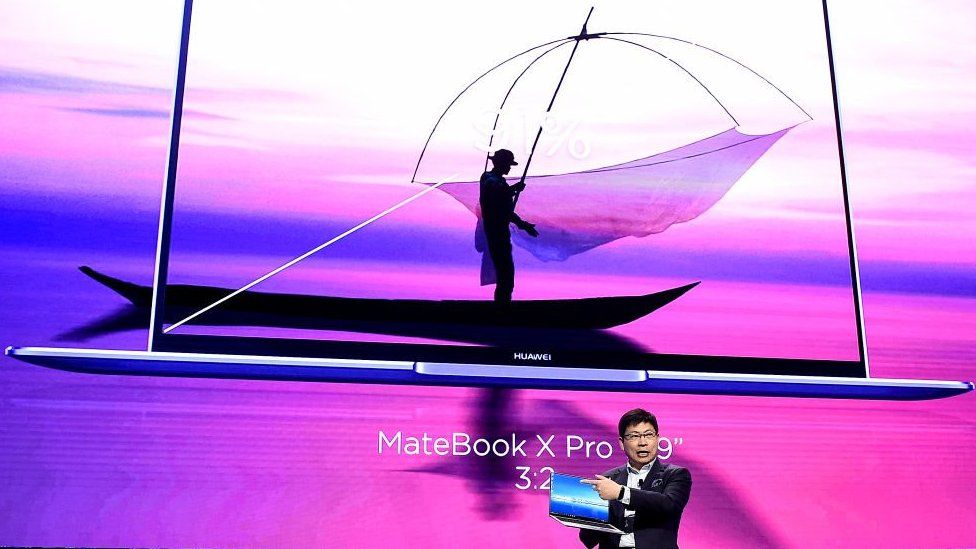Huawei cancels laptop launch because of US trade blacklist
- Published

Huawei has ditched a product launch for the first time since the US placed it on a trade blacklist.
It was reported that the Chinese tech firm had intended to unveil a new laptop as early as this week.
However, its consumer device chief Richard Yu told CNBC that it had become "unable to supply the PC".
"[It's] unfortunate," he added via a WeChat message to the business news network. He added that the product itself might have to be scrapped.
"[It] depends on how long the Entity List will be there," he wrote.
This refers to a list of foreign parties that the US Department of Commerce has judged to pose a potential national security or foreign policy threat.
Specifically, Huawei is accused of having committed bank fraud to evade Iran sanctions, and obstruction of justice, among other violations.
As a result, other companies with business activities in the US have been forbidden to sell or transfer technologies to the Shenzhen-based firm unless they have a special licence.
Huawei denies any wrongdoing, and has said that claims its poses a security threat are "unsubstantiated".
Self-drive cars
Huawei launched new smartphones shortly after the decision was taken last month.
But its inability to buy computer chips and other components from Intel, Qualcomm and Broadcom - among others - appears to have hindered its ability to produce the new laptop in the volumes required, despite the fact it had built up stockpiles of parts in case such a crisis occurred.
In addition, there has been speculation that Huawei would be unable to license copies of the Windows 10 operating system from Microsoft.
Washington's intervention has resulted in some non-US companies breaking links too. The chip designer ARM, for example, which is UK-based and owned by Japan's Softbank, told staff to suspend business with Huawei because some of its R&D work is carried out in the States.
Despite this, the Chinese firm continues to pursue partnerships with overseas companies.
The Financial Times has reported that Huawei has begun working with Audi and Toyota among others, to develop self-driving cars.